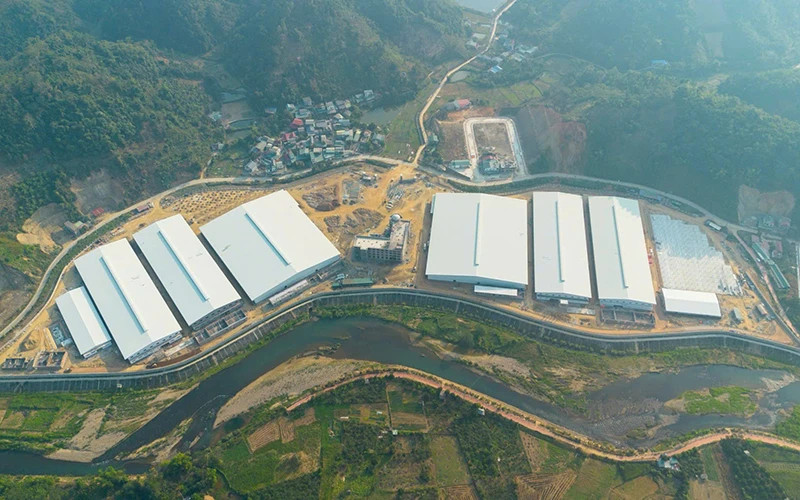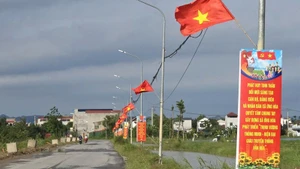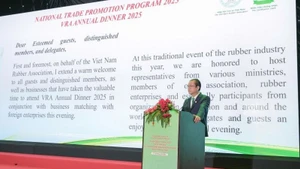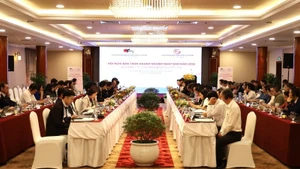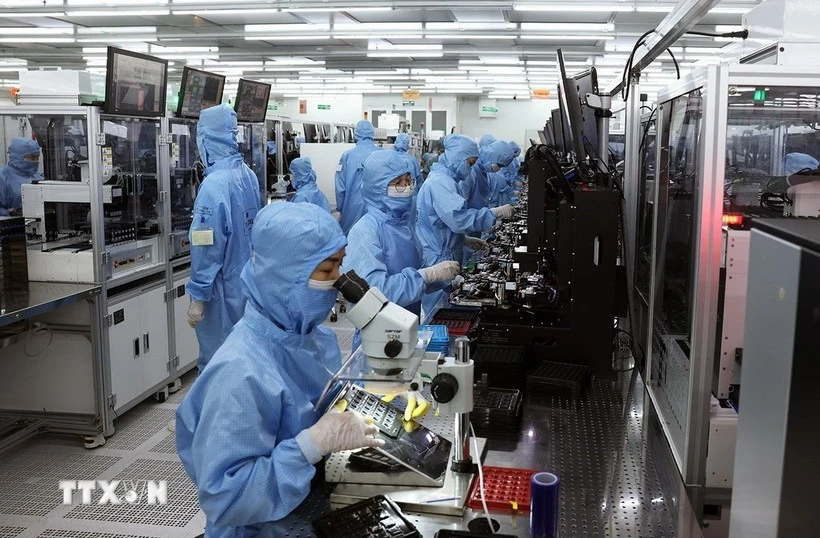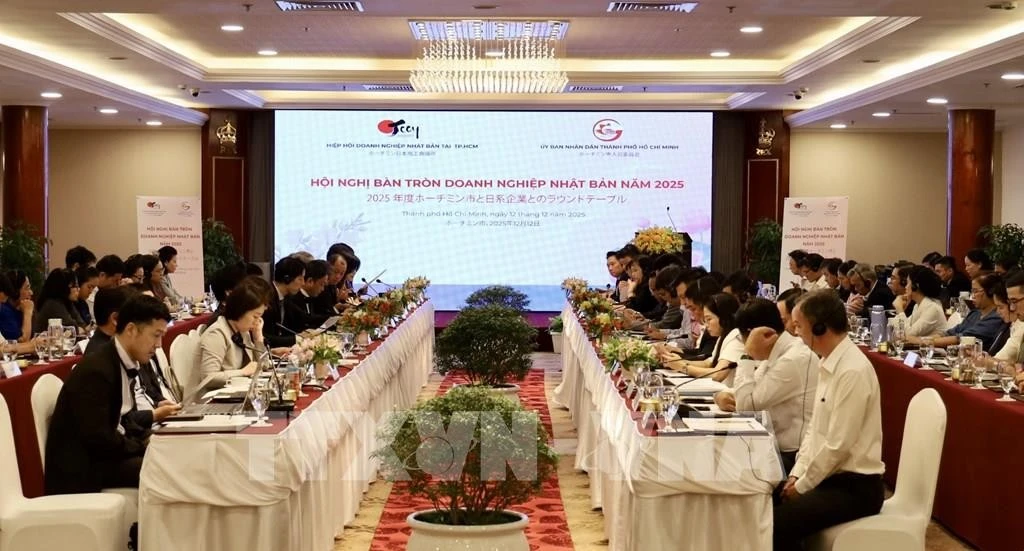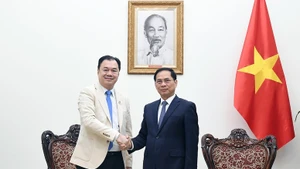Currently, the industrial clusters that have been and are being built in Bac Kan are all full, and secondary investors have registered to invest in building factories.
New attraction
Bac Kan ranks 31st in the country in terms of area, but most of the terrain is hilly, mountainous, and divided. Finding a large relatively flat area on which to build factories is very difficult. Investors intending to build technical infrastructure for industrial zones and clusters are concerned about the high investment rate when having to clear and level large volumes of soil and rock.
Due to the lack of land, secondary investors have not been interested in Bac Kan even though the province has built, issued, and actively connected incentive mechanisms and policies to attract investment. Therefore, the province's industry has been in a state of gloom for a long time. After much research, the province decided to invest into building small-scale industrial clusters with favourable mechanisms to attract investment capital.
Currently, the construction of the export shoe, sandal and shoe sole factory of Chung Jye Bac Kan-Vietnam Shoe Manufacturing Company (belonging to Better Power Group of Taiwan-China) at Huyen Tung Industrial Cluster in Bac Kan City is about to be completed.
With a total investment of about 25 million USD, expected to attract about 5,000 local workers, this is the largest FDI project in the province to date. Due to the availability of industrial park land, the construction progress of the factory is very fast. After only 6 months of construction, most items have been basically completed. It is expected to be fully completed on April 30, 2025, with the factory will commence production in June.
Do Song Hao, factory construction manager, said that due to the availability of industrial park land, the factory in Bac Kan has the fastest construction progress among the factories invested by the group in Vietnam.
In the coming time, the group will continue to invest in another factory in Vang Muoi Industrial Park, Na Ri District, and propose that the province approve the group to invest in building technical infrastructure for the Na Phac Industrial Park, Ngan Son District, towards building another factory.
Implementing the orientation of industrial cluster development, Bac Kan has approved detailed planning at a scale of 1 out of 500 for six industrial clusters, including: Cam Giang (Bach Thong District), Huyen Tung (Bac Kan City), Quang Chu (Cho Moi District), Vang Muoi (Na Ri District), Nam Bang Lung (Cho Don District), and Chu Huong (Ba Be District). As such, the province is using the budget to invest in technical infrastructure for the Huyen Tung, Vang Muoi, and Nam Bang Lung industrial clusters.
According to the Department of Planning and Investment of Bac Kan, Bac Kan's previous policy was to use budget capital to invest in building industrial clusters to create favourable destinations for investors.
Since 2024, in implementing the Government’s Decree No. 32/2024/ND-CP (dated March 15, 2024) on management and development of industrial clusters, the province has promoted the attraction of enterprises to invest in industrial clusters.
In practice, attracting secondary investors to completed industrial clusters shows the positive potential of industrial clusters in Bac Kan. Thanks to that, up to now, Bac Kan has had 3 out of 6 technical infrastructure projects of industrial clusters with approved detailed planning at a scale of 1 out of 500 registered for investment by enterprises.
According to Ha Sy Thang, Director of the Department of Industry and Trade, industrial clusters have been creating attractiveness for investment in developing local processing industry. This is an important premise for the province to promote industrial development in the coming time.
Sustainable development
In recent years, Bac Kan has paid attention to, directed and issued specific policies to support and create favourable conditions to attract investment in developing industrial clusters. The Bac Kan Provincial People's Council issued Resolution No. 08/2018/NQ-HDND (dated July 17, 2018) approving the program to support investment in technical infrastructure of industrial clusters in the province until 2025.
The committee also issued regulations on the management of industrial clusters in the area as well as regulations on encouraging and organising the implementation of socialisation of investment in construction, business, and operation of environmental protection infrastructure works for industrial clusters and many other regulations directly related to the development of industrial clusters.
 |
| Construction of technical items for water supply in the Quang Chu industrial cluster. (Photo: NGUYEN HOAN) |
Currently, Bac Kan has six industrial clusters established with a total area of over 186 hectares, of which three clusters are invested by the state budget and three clusters are invested by enterprises. Of these, five clusters are planned, oriented and have secondary investors agreeing to build factories for shoe and sandal production, mineral processing, plastic wood, and wood processing.
Regarding the Chu Huong industrial cluster in Ba Be District, the province has oriented and supported enterprises to invest in technical infrastructure to serve medicinal plant processing factories, creating a sustainable value chain for people when participating in the association of growing raw materials.
With support mechanisms and policies, the potential of investing in industrial clusters in Bac Kan has many prospects. Tran Cong Hoa, Director of the Department of Planning and Investment, commented that thanks to the industrial clusters, the number of investors coming to learn about and invest in Bac Kan in the past two years has increased rapidly.
Promoting this potential, in the coming time, the department will continue to advise the province to promote investment attraction in building technical infrastructure for industrial clusters, first of all in planned locations with convenient transportation. The roadmap to increase the number of industrial clusters will also be implemented on the basis of completing infrastructure such that businesses not only have access to convenient land but also convenient transportation.
According to Ha Sy Thang, the most difficult thing about investing in building infrastructure for industrial clusters is the implementation of related procedures such as adjusting, supplementing planning, detailed planning, site clearance, and converting the purpose of agricultural land and forest land usage, which takes a lot of time.
In the coming time, based on reviewing and assessing the difficulties and obstacles for each industrial cluster, the department will propose to the Bac Kan Provincial People's Committee to take measures and assign specific responsibilities to each agency and unit to remove difficulties and obstacles.
According to the roadmap, by 2030, Bac Kan will invest and attract investment in building technical infrastructure for 27 industrial clusters with a total area of over 670 hectares. By 2050, the province strives to increase the total area of industrial clusters to over 900 hectares.
Thanks to the basically completed traffic infrastructure, the distance from industrial clusters in the province to Hanoi or Hai Phong has been significantly shortened in terms of travel time. Therefore, the province has chosen the option of rapidly increasing the number of industrial clusters to catch the wave of investment through trade agreements signed by our country.
